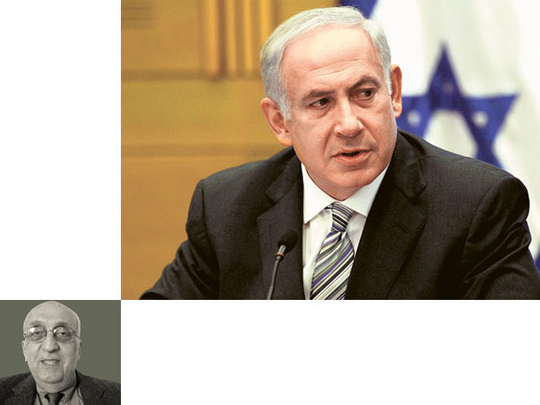
Washington: As the Arab world, particularly the Palestinians, were marking the 45th anniversary of Israel’s surprise attack on June 5, 1967 which led to its occupation of all of Palestine after kicking out Egyptian, Jordanian and Syrian troops in five days from their stations within the Palestinian borders, the Israeli leaders have nowadays launched trial balloons about their continued and much-criticized occupation policies.
Although Israel has withdrawn its troops from the Gaza Strip, the Palestinian rectangular region is still subject to stringent Israeli occupation policies denying the 1.5 million inhabitants freedom of movement toward the West Bank or Egypt, its southern neighbor, as well as using its port facilities and airport.
Even the half-baked Israeli pullout from some parts of the West Bank and Occupied East Jerusalem where Israeli settlements have been illegally established did not meet expectations. For one, there are more than half a million Israeli settlers in the occupied region and all borders of the West Bank are still controlled by Israeli troops and border guards, monitoring all traffic there.
Regrettably, the western big powers, particularly the United States which has close ties with the Israeli regime, have been reluctant to impose tough measures against Israel intransigence for their failure to abide by international regulations including several U.N. resolutions. The reluctance of the Obama administration to crack the whip is attributed to American president’s assumed fear that such a step would hurt his ongoing re-election campaign. More so, his Republican opponent, Mitt Romney, has recently discovered his zealousness towards Israel despite the significant drop in Israel’s popularity among American Jews as evidenced in the recent Celebrate Israel Parade in New York City, which has been known until recently as the Salute to Israel Parade. In 2002, there were an estimated 750,000 spectators who came to watch the 100,000 marchers. This year’s marchers were reportedly only 35,000.
The Israeli defense minister, Ehud Barak, had seemingly set the Israeli tone for the 35th Naksa (setback) Day in his declaration last week that Israel should consider imposing the borders of a future Palestinian state. The New York Times noted that Barak’s proposed one-sided action was by “the most senior (Israeli) government official to suggest bypassing a stagnant peace process” by putting in effect “its own settlement to the Palestinian crisis.” The minister acknowledged: “Israel cannot afford stagnation ... It will be a difficult decision to make, but the time is running out.”
Although his remarks had reportedly received a boost at the Israeli Institute for National Security Studies that is close to the military and security establishment, there was hardly a follow-up in the U.S. media or the Obama administration, even in the Israeli media. But interestingly, a prominent right-wing American Jewish educator, Alan Dershowitz, had called for a partial settlement freeze although in the view of Philip Weiss, co-editor of Mondoweiss, his Op-Ed “reflect(ed) the usual pigginess about Palestinian land.”
But as far Netanyahu, the Israeli leader remained adamant. He reportedly told his Likud Party cabinet ministers last Sunday that Israel must bolster colonization in the Israeli-occupied West Bank. His comment came during a discussion of the Israeli High Court’s recent ruling that the Ulpana Hill, a five-apartment neighborhood located in the Beit El colony, must be demolished by July 1 because these houses were built on Palestinian-owned land. Actually, the World Court has long ago been on the record that all Israeli construction on territory Israel occupied in 1967 is illegal.
In a speech this week in Istanbul during the World Economic Forum, Mahmoud Abbas, the Palestinian president, emphasized that the Palestinians “are asking for peace, justice and freedom – our people, have made great sacrifices when they accepted to establish their state on less than quarter of the original size of historic Palestine.”
But the U.S.-based Institute for Middle East Understanding (IMEU) in an impressive 18-page “fact sheet” described Israel’s tortuous 45 years of occupation as “leading many observers to conclude that the creation of a sovereign and territorially contiguous Palestinian state alongside Israel (i.e. the two-state solution) is no longer possible.”
If so, it is time to puncture the Israeli trial balloons. This should give the Palestinian leadership an incentive to seek assistance through international organizations, like the United Nations, rather than putting all its eggs in the shaky American basket.
George S. Hishmeh is a Washington-based columnist. He can be contacted at ghishmeh@gulfnews.com








